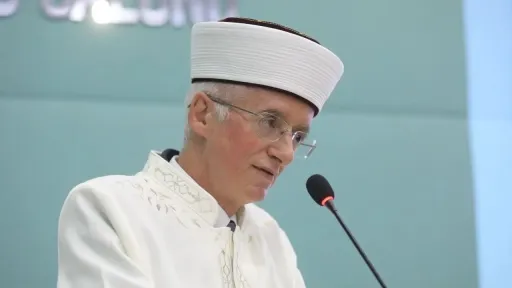TurkStream good solution for Russia to boost gas exports to southern Europe

Russian exports have underscored that although Europe is going to have more diversified gas with the Southern Gas Corridor project through the Trans-Anatolian Pipeline Project (TANAP) and the Trans-Adriatic Pipeline Project (TAP), the idea to bring more Russian gas via a southern flank seemed attractive as the European gas demand has been rising, especially over the last three years.
Russia is the largest gas supplier of the European Union (EU) countries and Russia's Gazprom gas monopoly controls 35 percent of the gas market in Europe, more than any other supplier.
In 2016, Russia made up 39.5 percent of Europe's gas imports and 37 percent in 2017. Russia's gas exports to Europe rose 8.1 percent last year to a record level of 193.9 billion cubic meters (bcm).
Russian Energy Minister Alexander Novak said Wednesday that European consumers are likely to boost imports of Russian pipeline gas, while Russia intends to raise its share in the global liquefied natural gas (LNG) market.
"As for pipeline gas, we expect Europe to increase its imports due to a cut in its own output and an increase in consumption," Novak said at a conference of the Russian Energy Week, an international forum that kicked off on Oct. 3.
Turkey last year imported 28.6 bcm of gas from Russia and the amount corresponded to nearly 52 percent of Turkish gas imports.
The first line of TurkStream reached the Turkish shore at the end of April after 930 kilometers of deep-water offshore pipe laying from Anapa, Russia, to Kıyıköy, Turkey. The second pipeline will be also complete within two months, as Gazprom CEO Alexey Miller said on Thursday.
TurkStream's first line will carry 15.75 billion cubic meters of natural gas to Turkey. The project will have a total throughput capacity of 31.5 billion cubic meters with the second line that will go to Europe.
Over the first eight months of the year, Gazprom exported over 133 billion cubic meters of gas to Turkey and the European Union – up 5.6 percent from the same period last year, Gazprom CEO had said in August. The Nord Stream 2 gas pipeline project is expected to cost around $11 billion to transport 55 billion cubic meters of Russian gas per year to Germany via the Baltic Sea once it becomes operational in early 2020.
Conflicts of interest may cause volatility in the oil market
In a report prepared in association with Sabancı University's Istanbul International Center for Energy and Climate, Yermakov argued that the conflicts of interests in the near future may create fluctuations in the global oil market.
The report "Russia, Saudi Arabia, and the U.S.: Supply Dynamics Among the Three Largest Oil Producers" pointed to the dynamics created by the "three largest" global oil producers while forming the current global oil market, how they shape oil markets and the current situation.
According to the report, the world is transiting to a low-carbon future, and this transition might lead to a dramatic and destructive price fluctuation based on a strategic conflict of interest in the global oil market. At this point, it is important to think about the past-present-future time chain and to understand what new oil market developments in the three major producers shape the oil industry and why and how strategies change and what these changes mean. The report elaborates on global oil market developments, revealing the challenges faced by the three major global producers. The main problem that Yermakov drew attention to in the report was how producers and export countries with different income needs and different levels of financial durability can reach agreements.
Referring to the developments of the past five years that have tested the stress levels of oil-producing nations with respect to the economically viable cost of production, fiscal breakevens, and elasticity of supply under quickly changing market conditions, Yermakov stressed that new market dynamics and trends turn former net importers into net exporters, creating new geographies of global petroleum trade with the U.S. becoming a net exporter.
Touching on the effects of real supply-demand balance and real country strategies on the oil market, Yermakov said that the total oil production of the U.S., Russia and Saudi Arabia constitutes almost three-thirds of the oil production all over the world.
Stressing that the increase in production led to a decline in oil prices in the aftermath of 2014 peak prices, Yermakov continued: "The U.S. production growth was a surprise for everyone. The oil trade has shifted to new regions and started to target the American, European and Asian markets. On the other hand, Saudi Arabia has come to play a more active role in the Organization for Petroleum Exporting Countries (OPEC)."
Yermakov stated that the agreement between Russia and the OPEC is longer-termed than expected, adding: "With this agreement, excess oil in the market was consumed – which brought balance to the market. Russia's tactical depreciation of the ruble in the recent troubled years has stabilized Russia regarding oil production in the long-term."
Source: Daily Sabah







